Custom House
Permanent linkRating: Four Stars
![]()
![]()
![]()
![]()

Custom House, a bright twist on the traditional steak house
For anyone who loves Chicago history, one of the most exciting periods occurred in 1871 after the Great Chicago Fire, when the Custom House Levee District flourished. Filled with saloons, brothels and gaming houses, and home to the genesis of the classic pay-for-votes politics, the Levee District was an oasis of sin and sensual pleasures. The higher class bordellos were as famous for the quality of their food and wine as they were for the charms of their girls, and the area we now know as Printer's Row spent a glorious thirty-five years reigning as the place to experience carnal delights of every sort.
As the epicenter of the American meat industry, Chicago's stockyards made us Sandburg's 'hog butcher to the world.' Eras like the heyday of the Levee District gave Chicago a reputation as a city of outlaws, wild characters and excitement. And events like the Century of Progress Columbian Exposition and World's Fair marked Chicago as a place of innovation, artistry and progress.
So it should be no surprise that Chef/Owner Shawn McClain , winner of the James Beard Best Chef -Midwest Award and a chef who had nothing to prove to this city after the success of his hotspots Spring and Green Zebra , has managed to meld three of Chicago's most famous attributes in Custom House . McClain has taken the concept of a traditional steak house, and with a combination of classic technical skill and broad artistic vision, has transformed it into a place that both honors its origins and explodes preconceptions…and done it in the heart of what used to be the infamous Levee District.
The open dining room at Custom House, with its tall ceilings and wide windows, erases the idea of the dark paneled rooms one usually expects when one thinks of a steak house. A wall of stone, softened by light fabric on the chairs, and simple elegant lighting is warm and welcoming. Starters are an embarrassment of riches, and deciding between them is a Herculean task. After consulting with our server, we choose the Quail, Smoked Rainbow Trout, and the special of the evening, a Goat Leg Tart.

Some delicious Custom House starters
The quail, simply roasted and served with a caramel balsamic reduction and a cippoline onion beignet, is perfect. The skin crisp and well seasoned, the meat cooked medium, highlighting the mellow gaminess of the tiny bird, a hint of sweet savoriness from the light drizzle of sauce. And the 'onion beignet' is quite simply the best onion ring either of us has ever tasted. Frankly, I'd like a basket of them and some barbeque sauce to dip them in. (Which is something I'd never actually request, but a girl can dream.)
The tart, a layer of pastry topped with caramelized onion, braised goat leg and baby leeks, is well executed, the meat deeply flavored, the onions sweet. We both wished the pastry was crisper to balance the softness of the toppings, but ultimately it was still a successful dish flavor-wise. But both of these were eclipsed by the Smoked Trout, a light salad with slivers of radish and celery-bacon vinaigrette, served on a cauliflower panna cotta. It is a dish neither of us would have ordered, but for the recommendation of our server, and it was by far the favorite. Served with buttery brioche toast sticks, it is the kind of dish that makes you smile with its inventiveness. The creamy cauliflower panna cotta, much more subtle than we had anticipated, is the ideal foil for the trout, smoked in-house, tender and flavorful. We have the 2006 Tavel Rose; the crisp clean wine with hints of strawberry is great with all three dishes.
For entrees, being a steak house, some beef was in order, and the Australian raised New York Strip with bone marrow maitre'd butter and roasted cippoline onions did not disappoint. The steak, aged 80 days, rivals any you will find at more traditional places, with the rich bone marrow butter putting it right over the top. We were leaning toward the halibut, but our clearly psychic server insisted on the sturgeon, and once again her advice was impeccable. The fish, served in a light morel mushroom broth, was tender and mild, a fish neither of us had tasted before and would definitely order again. Sides are designed to share, but making up your mind will be tough! We tasted a decadent oxtail risotto, which, when paired with the sturgeon became an inspired surf and turf. Creamed spinach, which actually tasted of spinach and not just cream, was enriched with parmesan bread crumbs and tiny cubes of fried celery root. Asparagus became a meal in itself, wrapped in prosciutto and anointed with black truffle.
But the hands-down favorite, again a recommendation from our server-cum-guru, was the Pommes Anna, thinly sliced potatoes layered with ricotta and house-smoked bacon. My giddy companion referred to it as potatoes au gratin on crack. And yes, you will crave more the minute the plate is empty. And my mother would disown me if I didn't tell you to order the Bulghur Wheat, which is her favorite thing on the menu! With this feast, the 2005 D & S Proprietary Red, a gloriously chewy California wine with tones of blackcurrant and chocolate, smoothed the edges.
Desserts were a rich warm toffee date cake, a tasting of three ice creams (white coffee, balsamic caramel, and triple chocolate) and a mini lemon Bundt cake. All delicious, with the exception of the balsamic caramel ice cream, which, though we were looking forward to it, had a strange and unwelcome aftertaste.

Don't forget the dessert!
Custom House is the sort of place you can return to again and again, the menu changes daily. And without question, let the exceedingly knowledgeable waitstaff influence your dining and drinking decisions, they will introduce you to some amazing new flavors.
Nosh of the week: One thing about food, there are trends, some enduring (Caesar salad in some form is still on menus highbrow and casual alike), some not (when was your last fondue party?). And certain ingredients come in and out of vogue like hemlines. But sometimes you find something that on first taste you know will become a staple of your kitchen. And for me, that new ingredient is Grains of Paradise. An African spice, which is similar to a pepper, but more closely related to cardamom, is my new go-to pal in the kitchen. I'm not a huge fan of black pepper, finding it often too bitter or its heat too powerful for the style of cooking I prefer. But this glorious spice, without the overpowering heat, and with both floral and citrus tones, highlights everything it touches. Salads are heightened, meats are enhanced, and even more surprising, fruits like pineapple and strawberries are taken to a whole new place with just a light grinding.
Available at Whole Foods, or online at www.worldspice.com , it is the kind of flavor that will uplift the everyday, and inspire you to experiment. Use it wherever you would use black pepper to start, and then let your imagination lead you. And just to prove that I am as cutting edge as I think I am, Sam Adams Summer Ale proudly lists Grains of Paradise as an ingredient. I might have to have one now. And if you find the perfect recipe for it, be sure to post it on the message board for the rest of us.
Nosh food read of the week:
The Sharper Your Knife, the Less You Cry
by Kathleen Flinn
Yours in good taste.
Stacey


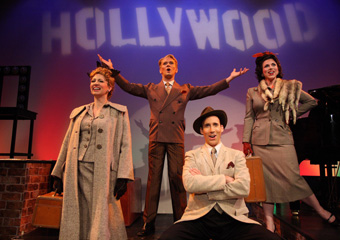
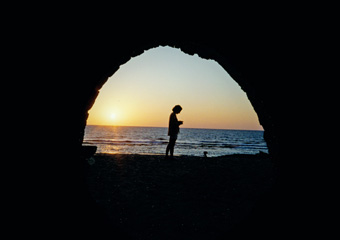
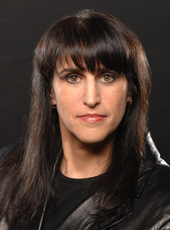
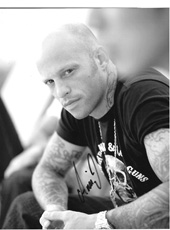
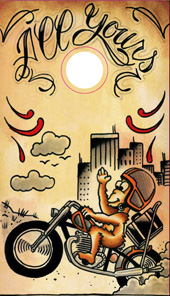
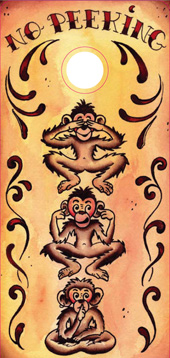
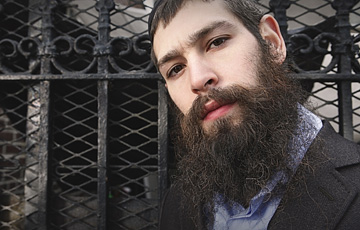
.jpg)


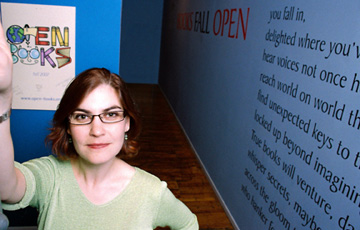



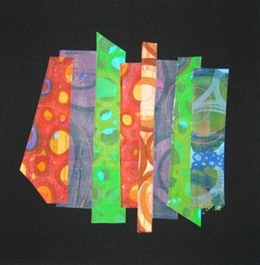








.jpg)



